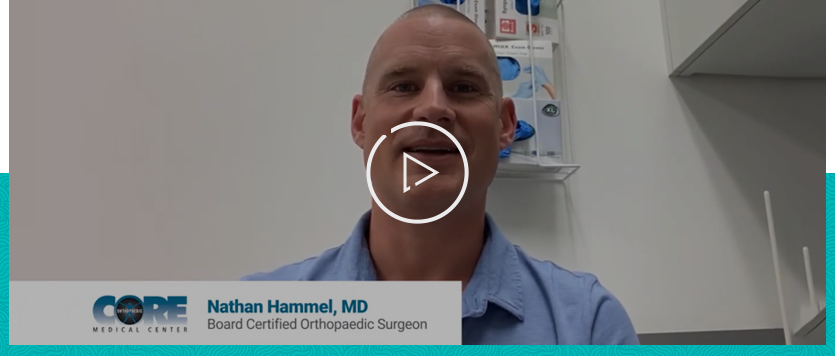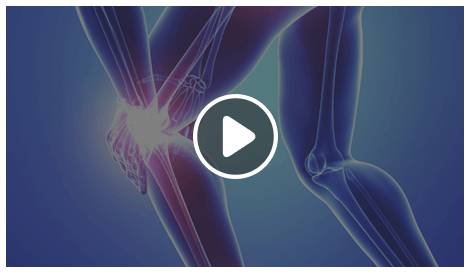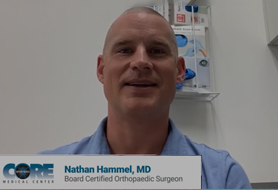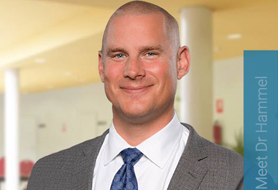Accelerated Recovery After Total Knee Replacement
Everyone is a candidate for accelerated recovery after surgery.
Over the last 20 years, the length of hospital stay after total knee replacement has gone down from 7 to 1.7 days after surgery. The trend continues today with the popularity of true same day surgical replacements. There have been advances in risk stratification of patients, blood product management and multimodal pain control which have allowed this.
Today, almost every patient who chooses to have their surgery performed in an inpatient hospital setting can go home the next day. The following document will describe the philosophy and the practical instructions to make your inpatient accelerated recovery total knee replacement a success.
Philosophy:
There has been a long standing misconception that the hospital is the best place to recover after illness. The opposite is probably true. Pain comes with an operation regardless of where you spend the night. In the hospital, you must ring for an attendant to receive a pain pill whereas at home it is at your discretion when medication is taken. In the hospital, sleep is often elusive. Other patients, mechanical alarms and overall activity contribute to inability to obtain restful sleep. The most concerning thing about prolonged hospital stay to your surgeons in the risk of hospital acquired infection from other patients, care givers, equipment and even ourselves as we go room to room. The sooner you are out of the hospital, the less likely you are to get the flu or a wound infection.
The primary reason my patients express a desire to stay more than one night in the hospital is pain. I can’t stress this enough that there will be pain after your surgery. The best pain medication I can give you is to tell you that it will hurt. Time and time again, the patients that stay in the hospital an additional night have no better pain control than the day prior. The harsh truth is it usually takes 5-10 days for the initial significant pain to go away. If your pain is controlled to a level where you can read a page of a book without being distracted by pain then that is about as good as you can expect.
Outpatient therapy versus home health PT:
I like patients to go to outpatient PT. Not only does home health service infer to you that you are unable to leave the house, but getting in a car to go to therapy accelerates your recovery towards functional activities like getting to the store or work.
Planning for a successful accelerated recovery:
It is critical that you prepare to transition to home in order to be successful. My best recommendation is that you arrange an able-bodied spouse or relative to stay with you for 7-10 days after surgery to help with early activities such as bathing and dressing. You will likely achieve independence in these activities by then. Many people choose to move sleeping areas if they are not currently sleeping on the first floor. Stairs can be negotiated, but in the first few days, make plans to limits this as much as possible.
Obtain your walker early, if possible, and make sure it works in your house. Make plans to have a ride to your outpatient physical therapy which should be scheduled about 5 days after your surgery. Remember that early on in your recovery, getting your knee completely straight is just as important as getting your knee to bend. Spend equal time on these exercises. Sit in a chair with your foot on a stool or table. Push down on your thigh, knee or shin forcing your knee backwards. Then sitting down with the leg out straight, use a towel to pull your foot towards you.
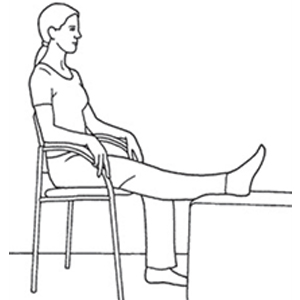
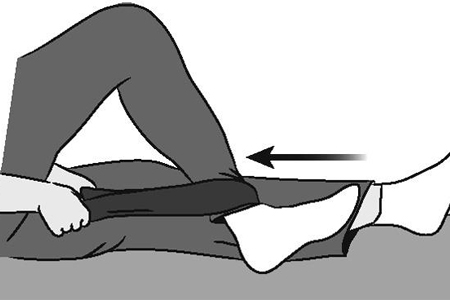
Before surgery, stop all narcotic pain medications if possible. Pre-operative use of narcotic pain medications predicts increase in post-operative pain. Smokers have more pain after surgery so if you can try to quit smoking. For pain control, make sure to take your medications as needed. You are in control of how much or how little is needed. Set up to use a motorized ice machine or multiple conforming ice packs to use. Take your daily medications for blood clot prevention based on your discharge and pre-hospital instructions. Patients who can tolerate anti-inflammatories are also prescribed daily anti-inflammatories for at least a month.
Wound management:
The dressing can be removed on post-operative day 3 and you can have a regular shower. Do not soak the wound. Do not put lotions or creams on the incision. The incision can be left open to air or you may replace a dry sterile dressing each day. The wound can have redness around the edges which can be normal. The knee will be warm. Please call the office if you are concerned.
If you want to talk about going home the same day as your surgery, ask me about it.





